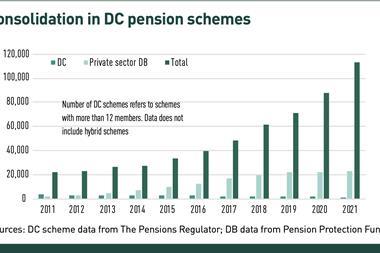Climate reporting rules for the UK’s local authority pension funds are expected to be announced in the autumn, the government has confirmed.
Speaking at the Pensions and Lifetime Savings Association’s (PLSA) Local Authority Conference today, Teresa Clay, head of local government pensions at the Department for Levelling Up, Housing and Communities, said a wide-ranging consultation on the future of the Local Government Pension Scheme (LGPS) was scheduled for the autumn of this year.
It will include rules on climate reporting by the LGPS’s 86 underlying funds in England and Wales, in line with the recommendations of the Task Force on Climate-related Financial Disclosures (TCFD).
The rules are expected to be similar to those introduced last year for private sector schemes, but will apply to all LGPS funds regardless of size.
The reporting rules introduced from last year for private sector UK schemes currently apply only to master trusts and pension schemes with more than £5bn (€5.8bn) in assets. Those with more than £1bn in assets will come into scope later this year.
LGPS funds range in size from the £26.9bn Greater Manchester Pension Fund to several smaller local authority schemes with just a few hundred million in assets.
Clay also explained that the LGPS’s TCFD framework would likely include a metric to assess data quality, on top of measurements of total emissions and emissions intensity. This is designed to take into account the evolving nature of climate data and the level of assumptions needed to arrive at a total figure.
“We are very anxious to ensure that we are reporting on these issues.”
Roger Phillips, chair of the LGPS Scheme Advisory Board
Earlier in the conference, Roger Phillips, chair of the LGPS Scheme Advisory Board, had expressed disappointment at the delay to TCFD rules for local authority funds, which the board had been pushing for in communications with Kemi Badenoch, the minister for local government, faith and communities.
“When I met the minister, I did say how extremely disappointed we were that the TCFD regulations had not come out,” he said. “We are very anxious to ensure that we are reporting on these issues.
“We are an extremely public pension fund. We are in the public eye, we are getting the freedom of information requests on a regular basis. We are working in this area, we are challenging [asset managers and companies] on climate change and ESG factors.
“It’s a good narrative, people need to know that, and we need to have that reporting mechanism.”
The government had previously said it planned to consult on climate-related financial disclosures by local authority pension schemes last year.
Phillips said a more consistent approach to reporting funds’ asset allocations would help the LGPS in its conversations with ministers about investment policies and TCFD reporting, while also helping funds and the overall scheme engage constructively with people seeking information about environmental investments.
“The biggest concern I have is how we get the mechanisms and that consistency of approach across all the funds,” Phillips said. “Pools can help in collating some of that information, but we need to drill down and see how we are [defining investments], because that will add to not only our understanding of our scheme and where we put our investments, but also to the wider world as well.
“In any good argument you need that strong evidence base and that’s what we need.”










